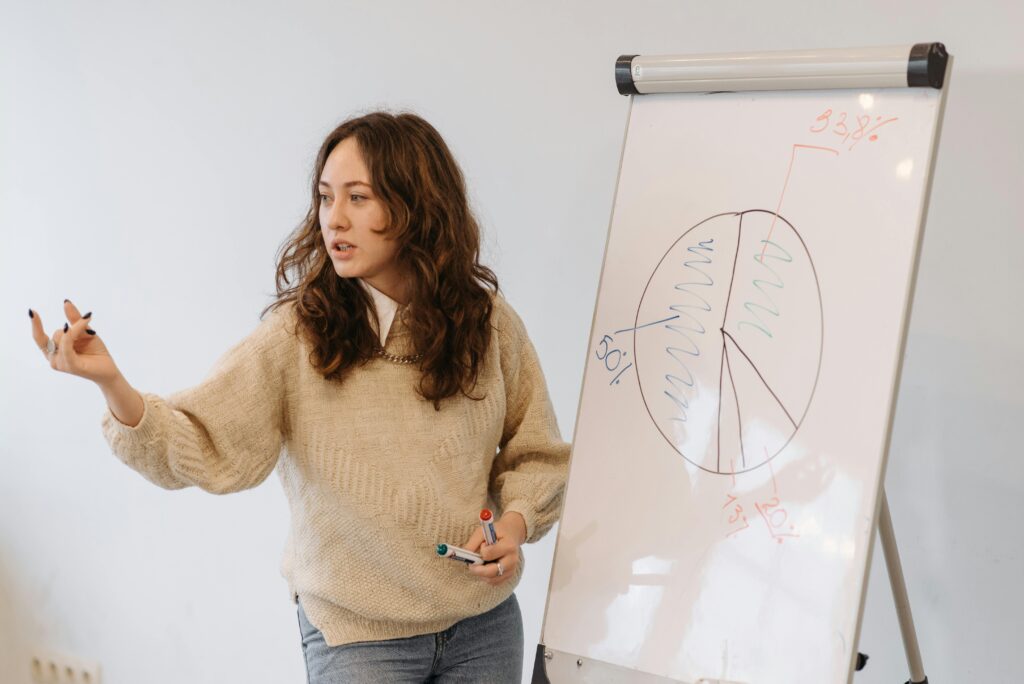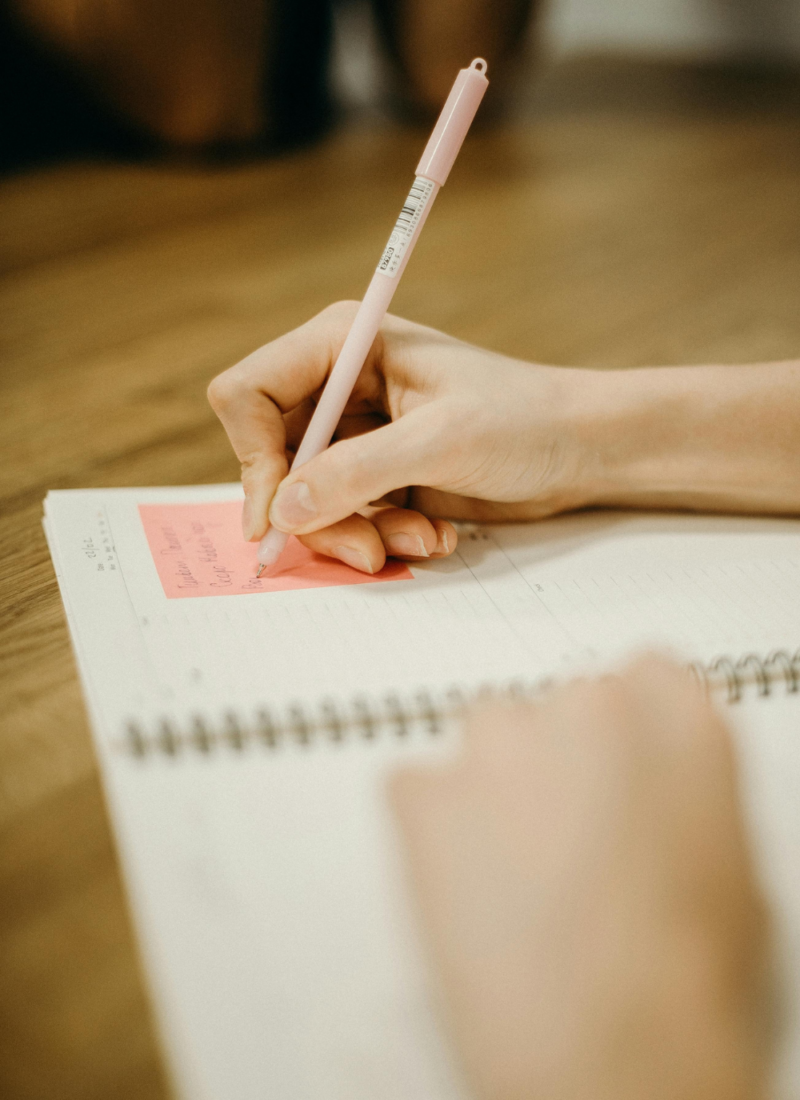Struggling with self-confidence is a common experience, regardless of personality type. While extroverts might not be immune, introverts often face unique challenges in building and maintaining it. That’s why I had the idea to write this article about 7 habits to improve your self-confidence as an introvert.

As an introvert myself, I’ve dedicated years to researching this topic and discovering strategies specifically tailored to support introverts in their journey towards self-confidence. Here are some common introvert traits:
- Finding joy in solitude: Introverts recharge and process information best in quiet environments.
- Feeling drained in social settings: Large social gatherings can be mentally exhausting for introverts.
- Thriving in independent work: Introverts often excel in solo tasks or projects.
- Having difficulty asking for help: Seeking external assistance can be challenging for some introverts.
Remember, these are just general characteristics. Importantly, introverts rely heavily on their internal world for reflection and self-evaluation.
This guide dives into 7 habits to improve your self-confidence as an introvert, regardless of your need for alone time or preference for solo work.
Now, let’s delve deeper into what self-confidence truly means and how you can build it as an introvert.
Understanding self-confidence for introverts:
While some define self-confidence as how well you think you can do something1, it goes beyond that. It’s about believing in yourself, and your abilities, and knowing you’ll be okay even if you stumble.
According to the Psychology Dictionary, self-confidence is the “trust in one’s abilities, capacities, and judgment”2.
It’s about feeling comfortable and trusting in your skin, knowing you’ll be okay even when things don’t go as planned.
Why is important to improve self-confidence as an introvert?
Many benefits come with boosting your self-confidence, especially as an introvert. Here are three key points:
- Stronger communication: Confidence reflects in how you communicate. When you believe in yourself, your communication becomes more open, sincere, and assertive, aiding in building relationships, career endeavors, and even everyday interactions3.
- Improved decision-making: Self-confident individuals make better choices that align with their goals4. If you lack confidence, you may avoid making decisions that potentially bring you closer to your desires.
- Handling challenges: With increased self-confidence, tackling difficult situations becomes easier for introverts, leading to reduced frustration5.
Developing self-confidence is valuable for everyone6, including introverts. It empowers you to manage your inner world and connect more effectively with the outside world, even though it might seem more challenging for introverts. But remember, it’s achievable!

How do you improve your self-confidence as an introvert?
Feeling introverted doesn’t mean you can’t be confident! Building self-confidence takes time and effort, but with the right approach, introverts can thrive.
As an introvert myself, I understand the importance of taking things slow and steady. Here are 7 habits to help you build or improve self-confidence without compromising your introverted nature:
Habit No.1 Study self-confident individuals
Think about the people you admire for their self-assurance. What makes them stand out? Take some time to create a list of 5 confident individuals you find inspiring (Confident Inspiration List). For each person, write down:
- Name and Profession: Who are they and what do they do?
- Reasons for Admiration: Why do you look up to them?
- Uniqueness: What sets them apart from others?
Research shows that successful people often develop their confidence through unique experiences7. Studying individuals you admire can help you identify valuable qualities and strategies you can incorporate into your journey.
You learn and grow by observing others. Just think about how much you acquired from your parents, teachers, and friends – language, manners, and even habits. The same principle applies to building confidence.
Remember, confidence isn’t something you’re born with, it’s something you can cultivate with the right approach. Stay tuned for the next habit in this series and discover more ways to boost your introverted confidence!
Habit No. 2 Embrace the discomfort zone
Introverts often struggle with self-doubt, believing they cannot succeed. These negative thoughts can trigger fear and frustration, leading them to avoid situations that challenge them. However, this avoidance can be counterproductive, hindering their confidence in the long run.
The key to overcoming this hurdle is to step outside your comfort zone. By gradually exposing yourself to unfamiliar situations, you’ll inevitably encounter uncomfortable feelings. But here’s the secret: acknowledging and understanding these emotions is crucial.
Here’s a simple exercise to increase your emotional awareness:
- Pause and identify your emotions. What are you feeling right now? Is it anxiety, nervousness, or something else?
- Pinpoint the location of these feelings. Do you feel a tightness in your chest, a flutter in your stomach, or a racing mind?
- Accept and acknowledge these emotions. They are normal and don’t define you.
By understanding your emotions, you gain control and discover the inner strength to navigate challenging situations. This newfound self-awareness empowers you to find solutions and overcome obstacles, ultimately boosting your confidence8.
Remember, progress takes time and practice. Be patient with yourself, celebrate small victories, and embrace the journey of building lasting self-confidence.
Habit No. 3 Practice makes progress (even for introverts)
Introverts often shy away from tasks that push them outside their comfort zone due to a lack of confidence. But here’s the secret: the more you practice, the easier those tasks become.
Continuous practice builds trust in your abilities. As your skills improve, you’ll feel more empowered to tackle bigger challenges. Social psychologist Albert Bandura9 emphasizes the importance of consistent practice in mastering any skill.
Here’s your action plan:
- Identify a confidence-draining task. It could be public speaking, networking, or leading a meeting.
- List the required skills. Break down the task into smaller, manageable skills.
- Self-evaluate your skills. Honestly assess your current level in each skill.
- Focus on improvement. Choose the weakest skill and find ways to develop it (e.g., taking a course, or joining a support group).
As your skills improve, so will your confidence. Remember, set realistic goals and celebrate progress, not perfection. Nobody is perfect!
Bonus Tip for Introverts: Remember, you have a limited energy pool. Prioritize social interactions and stimulating environments for important tasks like skill development. Schedule recharge time to maintain your energy levels.
By following these steps, you’ll be well on your way to building confidence and tackling any challenge, even as an introvert.
Habit No. 4 Challenge your routinary thoughts
Struggling with self-confidence often leads us to ask negative “why” questions, like “Why am I not confident?” or “Why are others more confident?”
Instead, challenge those thoughts and ask empowering “how” or “what” questions: “How can I become more confident?” or “What can I do to improve my confidence?”
This shift, as research suggests, can empower you to find solutions and build confidence10.
Positive self-talk isn’t just feel-good advice; it’s backed by research. A study published in “Psychology of Sport and Exercise” (2009)11 found that athletes who engaged in positive self-talk experienced increased confidence, reduced anxiety, and improved performance. So, next time you’re faced with a challenge, remind yourself of your strengths and celebrate your efforts.
What do you say to yourself in the mirror? Are your words kind and encouraging?
If negativity dominates your self-talk, work on silencing it. Embrace your unique qualities. Acknowledge your strengths and compliment yourself.
Instead of comparing yourself to an unrealistic ideal, celebrate your progress toward personal goals.
Remember, your confidence thrives when you appreciate the journey, not just the destination.

Habit No. 5 View Mistakes as Stepping Stones, Not Stop Signs
While building self-confidence, it’s crucial to remember that everyone makes mistakes. Instead of viewing them as setbacks or failures, see them as opportunities to learn and grow.
This shift in perspective, adopted by soccer referees in a 2007 study12, allows them to analyze their errors without dwelling on them. Instead of feeling shame or fearing repetition, they focus on moving forward and improving.
Here’s why this mindset shift works:
- Focuses on growth: By analyzing the cause of your mistakes, you gain valuable insights and knowledge to avoid repeating them in the future. This promotes learning and growth, both essential aspects of building confidence.
- Promotes self-compassion: When you understand that mistakes are inevitable and part of the learning process, you can treat yourself with kindness and understanding instead of harsh self-criticism. This fosters self-compassion, a key ingredient in building a healthy sense of self.
- Reduces fear of failure: By viewing mistakes as temporary, you lessen the fear of experiencing them again. This alleviates anxiety and allows you to approach new situations with greater confidence.
By adopting this mindset, you’ll be less likely to fear future mistakes and approach challenges with greater confidence. Remember, everyone makes mistakes, and seeing them as temporary learning experiences will help you thrive on your introverted journey.
Habit No. 6 Unleash the Power of Visualization
Ever heard of the saying “seeing is believing”? Well, for introverts, it can be “imagining is achieving”! Your mind holds incredible power, and by harnessing the potential of visualization, you can unlock a powerful tool for boosting your confidence.
Studies, like one published in the Journal of Educational Science (2023)13, have shown that simply imagining yourself succeeding in a task can significantly increase your confidence and, ultimately, your chances of success.
Here’s how it works:
- Imagine yourself succeeding in vivid detail. Picture yourself completing the task flawlessly, feeling calm and collected.
- Analyze your imagined actions. This helps identify potential roadblocks and develop strategies to overcome them, leading to greater confidence.
- Embrace the comfort of preparation. By mentally rehearsing your success, you feel more prepared and confident in your abilities when the real moment arrives.
By crafting detailed mental images of yourself performing at your best, you can identify potential roadblocks and discover creative solutions. This mental preparation empowers you to approach your goals with greater confidence and ease.
So, the next time you have a goal in mind, close your eyes and become the director of your successful movie. Visualize yourself conquering your challenge with skill and confidence. You might be surprised at the positive impact it has on your mindset and performance.
Habit No. 7 Get closer to your authentic self
As an introvert, you likely spend a lot of time reflecting on your inner world. But knowing and appreciating who you truly are can be surprisingly challenging, even for self-aware introverts. This self-discovery is crucial for building self-confidence.
Here’s a simple exercise to help you explore your authentic self:
1. Grab a sheet of paper and divide it into three sections. Title each section:
- Who I Want to Become: This is your ideal future self. Who do you envision yourself as in 5 years? How do you see yourself interacting with the world?
- Who I Think I Have to Be: This is the person you feel obligated to portray, often due to external pressures or expectations.
- Who I Don’t Want to Be: These are the traits and behaviors you actively seek to avoid.
2. Fill out each section with details. Be honest and specific about the characteristics that define each version of yourself.
Here’s the science behind it: Studies have shown that the closer you are to your ideal self, the higher your self-confidence and overall performance14. This exercise helps you identify the gap between who you are and who you want to be, empowering you to bridge that gap and embrace your true, confident self. This is another great way to improve your self-confidence as an introvert.
Common questions about self-confidence for introverts:
Introverts often grapple with unique challenges regarding self-confidence. Here, we address some frequently asked questions:
1. How do you know you have to improve your self-confidence as an introvert?
Being introverted isn’t a problem, but sometimes you might find it holding you back in certain situations. If you experience self-doubt, struggle to express yourself in social settings, or shy away from opportunities because of social anxiety, it could be a sign that boosting your self-confidence could be beneficial.
Remember, introversion is about how you recharge your energy, not your potential or abilities. By taking steps to build your confidence, you can embrace your natural strengths while stepping outside your comfort zone and reaching your full potential.
2. What happens when you improve your self-confidence as an introvert?
Building your self-confidence as an introvert doesn’t mean turning into an extrovert. It’s about embracing your natural introverted tendencies while feeling empowered to express yourself and pursue your goals.
With increased self-confidence, you’ll find yourself stepping outside your comfort zone more often, whether it’s contributing your ideas in a meeting, joining a new club, or striking up a conversation with someone you admire. You’ll also experience a greater sense of self-acceptance, allowing you to navigate social situations with authenticity and purpose.
3. What to do first to improve self-confidence as an introvert?
Building self-confidence as an introvert requires a unique approach. Before diving into specific strategies, it’s crucial to gain clarity on your current situation. Take time to honestly reflect on what “self-confidence” means to you. How might a lack of it be impacting your life? Are there specific goals you’re struggling to reach or situations where you feel held back?
By identifying these areas, you’ll gain valuable insights and direction for your self-confidence journey. This initial self-awareness empowers you to tailor strategies that truly address your individual needs and aspirations.
Why is it difficult to improve self-confidence as an introvert?
Building self-confidence can feel like an uphill battle for anyone, but introverts might face unique challenges. Societal expectations often favor extroverted behaviors, making introverts feel like their natural preferences are “wrong” or inferior.
This can lead to negative self-talk and a critical inner voice, hindering their confidence in their abilities and contributions.
Additionally, introverts often recharge by spending time alone, which can sometimes be misinterpreted as shyness or social awkwardness. This misinterpretation can further fuel self-doubt and make it difficult for them to feel confident putting themselves out there.
What is not self-confidence?

It’s important to debunk some common misconceptions about self-confidence. Self-confidence isn’t about15:
- Feeling superior to others and believing you won’t make mistakes: Confidence thrives on self-acceptance and a growth mindset. Embracing your imperfections and learning from mistakes are crucial for building lasting self-confidence.
- Thinking you won’t have any difficult situations in your life: Life inevitably throws challenges our way. While self-confidence doesn’t guarantee a problem-free existence, it equips you with the resilience and inner strength to navigate them effectively.
- Focusing on yourself and ignoring others around you: True confidence comes from a secure sense of self, allowing you to connect with others authentically and build meaningful relationships. Self-confident individuals are often more empathetic and supportive, the opposite of being selfish.
Conclusion
Building self-confidence as an introvert is a journey of self-discovery and acceptance. It’s important to include in your routine these 7 habits to improve your self-confidence as introvert.
Feeling good in your skin and trusting your abilities – that’s what self-confidence is all about. It’s not just about being the loudest voice in the room; it’s about knowing you’re capable and believing in yourself, even when things get tough.
Remember, introversion is not a weakness, but a unique strength that allows you to thrive in different ways. By incorporating these habits into your life, you can cultivate self-belief, navigate social situations with confidence, and embrace your authentic introverted self. So, take a deep breath, celebrate your quiet power, and remember – you are worthy and capable of achieving great things.
References:
- Hollenbeck, G.P., & Hall, D.T. (2004). Self-confidence and Leader Performance. Organizational Dynamics, 33, 254-269. APA Psychology Dictionary APA Dictionary of Psychology
- P Samthirao (2016), Self-Concept and Interpersonal Communication, International Journal of Indian Psychology, Volume 3, Issue 3, No. 6, DIP: 18.01.115/20160303
- Apostolos Ampountolas, Gareth Shaw & Simon James (2019) Active Learning to Improve Self-Confidence and Decision-Making Skills Through the Use of Hotel Simulation, Journal of Hospitality & Tourism Education, 31:3, 125-138, DOI: 10.1080/10963758.2018.1487786
- Yusop, Yusni & Zainudin, Zaida & Ahmad, Nor Aniza & Norhayati, Wan & Wan Othman, Wan Norhayati & Surat, Dr & Fung, Wong. (2020). THE EFFECTIVENESS OF GROUP COUNSELLING: A SYSTEMATIC REVIEW. Journal of Critical Reviews. 7. 513-518. 10.31838/jcr.07.13.94.
- Benabou, Roland & Tirole, Jean. (2002). Self-Confidence And Personal Motivation. The Quarterly Journal of Economics. 117. 871-915. 10.1162/003355302760193913. .
- Hollenbeck, George & Hall, Douglas. (2004). Self-Confidence and Leader Performance. Organizational Dynamics – ORGAN DYN. 33. 254-269. 10.1016/j.orgdyn.2004.06.003.
- Harahap, S., & Netrawati. (2022). THE EFFECTIVENESS OF GROUP COUNSELING THROUGH THE GESTALT APPROACH IN INCREASING INTROVERT PERSONALITY CONFIDENCE: Array. Literasi Nusantara, 2(1), 175–185. Retrieved from https://journal.citradharma.org/index.php/literasinusantara/article/view/272).
- Bandura A (1986) The explanatory and predictive scope of self-efficacy theory. Journal of Social and Clinical Psychology 4(3): 359–373.
- Beattie, Stuart & Hardy, Lew & Woodman, Tim. (2004). Precompetition Self-Confidence: The Role of the Self. Journal of Sport and Exercise Psychology. 26. 10.1123/jsep.26.3.427.
- A Molden, D.A Hutchinson, P. (2012) How to be Confident with NLP: How to be Confident with NLP: Powerful techniques to boost your self-confidence. Pearson Education https://books.google.com.co/books?id=fvnpu_kp59IC
- Antonis Hatzigeorgiadis, Nikos Zourbanos, Sofia Mpoumpaki, Yannis Theodorakis,
- Mechanisms underlying the self-talk–performance relationship: The effects of motivational self-talk on self-confidence and anxiety, Psychology of Sport and Exercise, Volume 10, Issue 1, 2009, Pages 186-192, ISSN 1469-0292, https://doi.org/10.1016/j.psychsport.2008.07.009.
- Wolfson, Sandy and Neave, Nick (2007) Coping under pressure: cognitive strategies for maintaining confidence among soccer referees. Journal of Sport Behavior, 30 (2). pp. 232-247. ISSN 0162-7341 Published by: University of South Alabama URL: This version was downloaded from Northumbria Research Link: https://nrl.northumbria.ac.uk/id/eprint/3301
- Prastyawan, R., Suherman, W., & Nasrulloh, A. (2023). The influence of internal and external visual imagery on self-confidence in learning gymnastics. Jurnal Cakrawala Pendidikan, 42(3), 771-780. doi:https://doi.org/10.21831/cp.v42i3.56903.
- Peterson, T. (2021, December 24). What Is Self-Confidence?, HealthyPlace. Retrieved on 2024, February 15 from https://www.healthyplace.com/self-help/self-confidence/what-is-self-confidence




Leave a Reply